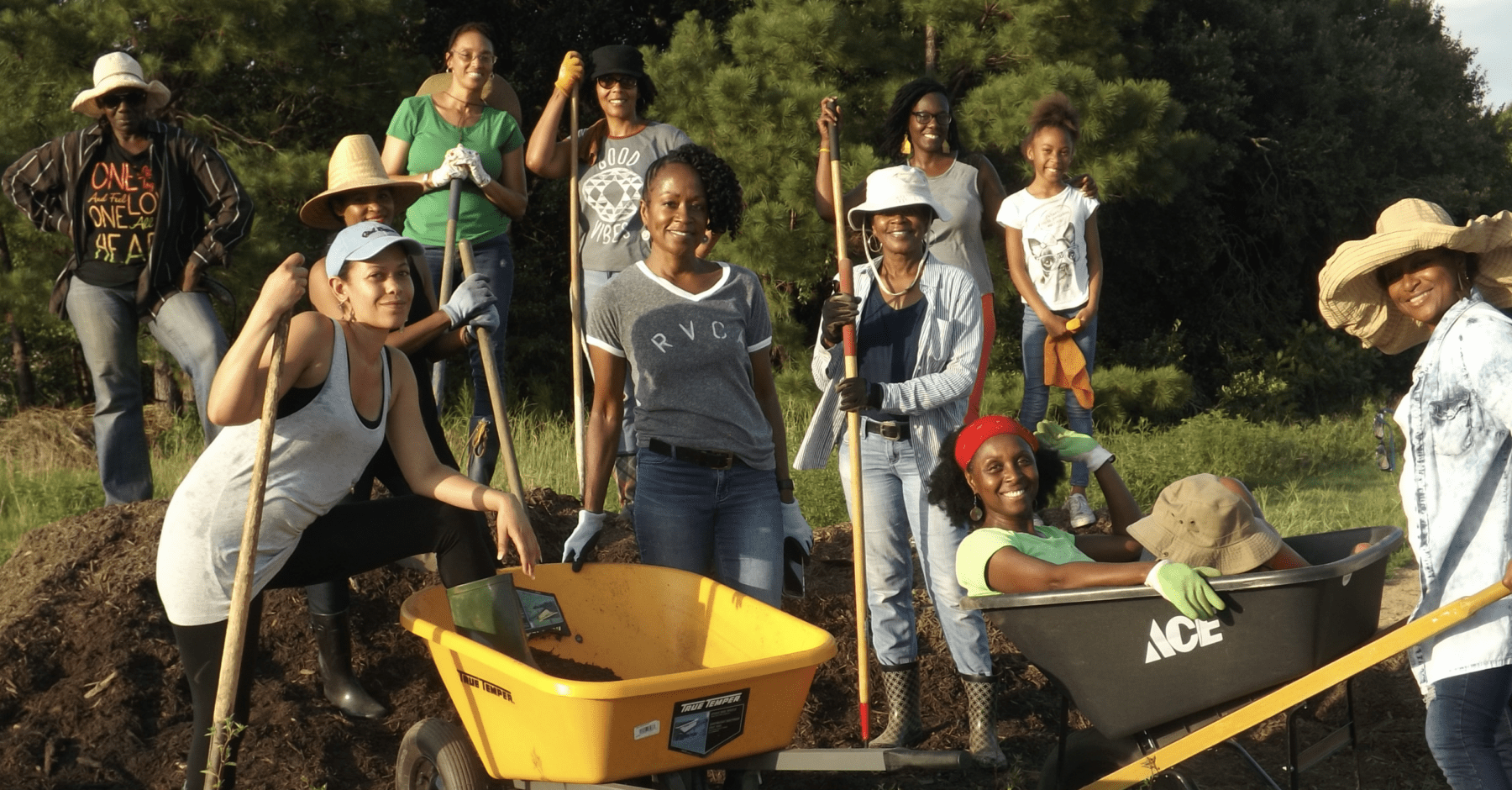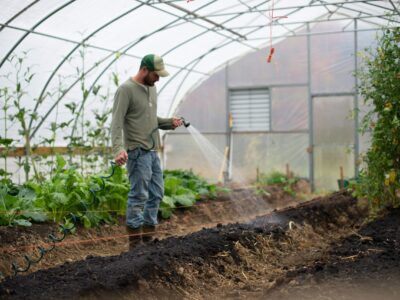The dirt is dark and fertile as the South Carolina sun gently washes over the fields ripe with vegetables and flowers dotting the acre plots of Clemson University’s incubator program at the Sandhill Research and Education Center (REC) in Columbia. Clemson may be best known for winning its NCAA football national championship legacy, but the Tigers winning streak extends from the football field to the crop fields of Columbia where a community farm organization is changing the landscape.
Bonita Clemons, a 55-year-old health and wellness expert, is the coach and captain for this innovative effort. She recognized that the agriculture industry offered opportunities to grow its reach and expand its ranks. In particular, she wanted to unite a group of local women to teach them how to farm and lead healthier lives.

Clemons told Garden & Health, “The vast majority of farmers are mostly white men, we’ve got to have some women, some younger women, and some younger Black women in the pipeline.”
In South Carolina, approximately 36% of decision-makers on farms are women and 7% are Black, according to the 2017 USDA agriculture census. Clemons recognized the incredible potential that access to and education about agriculture could provide for women and the community.
Clemons is focused on promoting self-care and empowering women through farming and her approach is multi-pronged. Clemons wants the women she works with to be able to provide for themselves and their families, and then to connect the crops with other families in need with fresh produce. This is especially important to Clemons, who also runs Dianne’s Call, a non-profit organization dedicated to combating food insecurity. Many areas in and around Columbia suffer from food insecurity and are considered ‘food deserts’. “I don’t like the word ‘food desert’ because we don’t live in a desert, and we can grow food year-round in South Carolina. It’s a travesty that we have hungry people in South Carolina.”
In 2016, when Clemons heard about Clemson University’s incubator program, which provided an acre of farmland to anyone interested in learning how to farm or start an agro-business, she was intrigued. Clemons applied and was accepted. She posted a flier to help her find women and girls who wanted to be a part of a farming team. “We need experienced growers and those who have never grown,” the flier explained. Clemons immediately had a roster of women eager to begin.

Two years later, after a delay in the program’s launch, Clemons’ hard work and persistence paid off, and FarmaSIS began its program at Clemson’s REC. While the delay caused several of the original 26 women to leave, 11 women, including Clemons, persevered. While speaking with Garden and Health, Clemons said that over the past few years the women have become like family and that everyone looks out for each other. This season they have grown flowers, kale, squash, cucumbers, corn, tomatoes, green beans, and other produce.
FarmaSIS has three primary goals: to “work collectively–work together as Black women because they say we can’t work together, but we can; number two – improve our health through nature, science shows getting back to nature has a spiritual, physical and emotional component; and three is economic growth – once we learn how to grow, we can sell it and make money,” Clemons says. She also plans to bring on 10 new farmers in January 2021 to launch a training program where the current group of female farmers will train the next group of women, expanding the number of Black female farmers in the state.
But Clemons has her sights set beyond her Columbia FarmaSIS group. She plans to start a similar group in her hometown of Anderson, South Carolina as well. While the COVID 19 pandemic will make it challenging for the new group to meet in-person, Clemons plans to do a lot of teaching virtually. And since the onset of the coronavirus pandemic, FarmaSIS has shifted to farming in small groups with Clemons leading weekly Zoom check-ins with the team, she plans to do the same with the upcoming Anderon group.
For one of the group’s members and lead grower, Thomasena Hoefer-Laudmon, the experience has been transformative. Clemons explained, “Our lead farmer, she would barely talk. She didn’t say much, and now she’s the leader. She speaks in front of people. She’s just opened up like a beautiful sunflower. Now she has purpose and is finding out what she wants to do with her life.”
We spoke to REC Farm Manager Cody Bishop who said, “They’re working together and accomplishing their goals, even through adverse conditions. We’ll go out and do a program together and they’re all very attentive, eager to learn — and that’s a good thing to have. It’s a lot of learning for everybody.” Currently the other REC tenants “include a woman who grows flowers for her fresh-cut bouquet business and a woman who grows vegetables to sell,” Bishop continued.
FarmaSIS has also done its part to help those in areas around Columbia where fresh produce is scarce. The group has sold overflow produce to Rare Variety Vegan Cafe, near downtown Columbia which has been operating a fresh food market during the COVID pandemic. At the heart of the initiative to nourish those in need remains Bonita Clemons, whose desire to educate, inspire, and enrich her community, has changed lives and made a difference for those around her. “These years have had an amazing impact on their health, on their wealth, and on their way of thinking,” said Clemons. “I can’t see it all, but I can feel it.”





